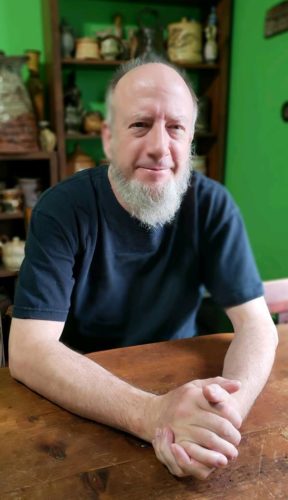The following is an incredibly thoughtful response written by Carter Gilles to my post The Chasm of Disbelief. I am particularly grateful to him for pointing out the important role that doing the arts, participating in the arts, can play in overcoming disbelief. Once again, thanks Carter!
Doug Borwick

The idea that ‘the arts are not valuable’ is not simply a statement in isolation but the conclusion from a larger point of view. The belief that the arts don’t matter is not simply words uttered but a practice of not seeing them as mattering. Among the things that surround the idea that the arts don’t matter is the curious perception that we have nothing to do with them. The quote you share from Jonathan Katz nails it:
“This disinclination to believe is rooted in unexamined assumptions that the arts do not touch the lives of more than a select few.“
It’s not just that the arts don’t matter but that the arts are by other people and for other people. And part of this assumption rests on the observation that the things that happen in the arts are themselves alien to us. It is the view that what happens on a stage is fundamentally different from what happens on the radio, what is displayed in museums is fundamentally different from what happens in one’s home. It is the feeling that whatever we ourselves do, it has nothing to do with the arts.
But the interesting thing is that no one got to be this alien sort of artist from an alien birth. Everyone who makes a profession of the arts started out as a kid with crayons and paint, with lumps of clay and sandboxes filled with toys. We did all those things with little more than some raw materials and a bounty of imagination. Everyone started as an artist because this is what humans do. [Emphasis by Doug Borwick]
The thing we are denying when we say “the arts don’t matter” is that they matter to us. The idea that they don’t matter to us depends on the impression that they have no place in our lives. And the perception that they are somehow separate from us depends on the hallucination that we ourselves were never engaged in art.
This is not so much a matter of belief as of forgetting. Somehow we have forgotten that art DID matter to us, that we ourselves were artists, and that we too, even now, have the capacity for creativity and expression. It may just need dusting off, but we are not untouched by it.
And if it is true that part of what we are dealing with is a matter of forgetting, then this can be addressed in a way that disbelief can’t be.
Beliefs are part of a larger structure, and you cannot just peel one off the surface without severing the connections it has in other beliefs and practices. Replacing disbelief with belief is not a straightforward surgery. Belief is not the tool to overcome disbelief. But the idea that we can remind someone of what they already knew is a different task. The best way to remember something is to do it oneself. Like riding a bike. [Emphasis by Doug Borwick] The Gordian Knot of disbelief is cut through with simple acts of remembering.
If you forget you know how to ride a bike you won’t believe you can. Is that chasm of disbelief something real? It may take a few tries, but if you have learned to ride a bike and simply forgotten it disbelief is a sort of mischief we perpetrate on ourselves. A self sabotage.
We don’t earn our disbelief merely through neglect. Some things are worth disbelieving and we have valid reasons for doing so. To have forgotten something and for that reason alone disbelieve it is itself a prodigious leap into mythology and illogic. It sets up misremembering as the standard of veracity, dismantles proof, and invites relativism.
There are things that are true whether we believe them or not. Disbelief in the wrong hands makes a mockery of the truth. The arts matter, despite the words of justification for tearing them down. It is not a condition of our disbelief alone that prevents us from seeing this.
